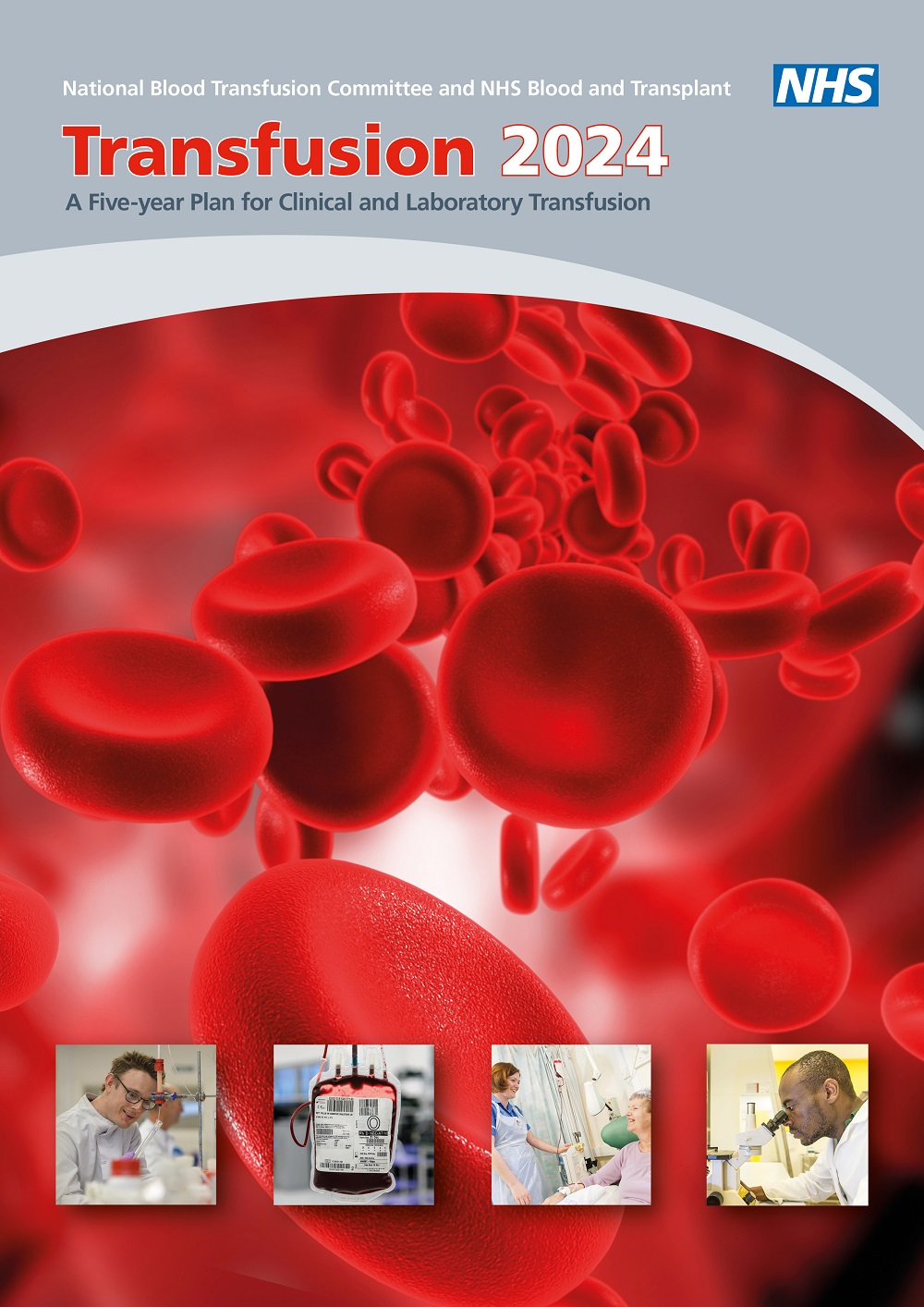Transfusion 2024: A five-year strategy to make transfusion care safer across NHS
NHS Blood and Transplant (NHSBT) and the National Blood Transfusion Committee (NBTC) have published the Transfusion 2024 report for NHS providers and other key stakeholders today. The report sets out key priorities for clinical and laboratory transfusion practice for safe patient care across the NHS for the next five years.
 Around two million units of blood and blood components are transfused in hospitals in England each year. Transfusions are given to adult and paediatric patients in a variety of situations, including trauma, surgery, cancer, renal, haemoglobinopathy, and intensive care.
Around two million units of blood and blood components are transfused in hospitals in England each year. Transfusions are given to adult and paediatric patients in a variety of situations, including trauma, surgery, cancer, renal, haemoglobinopathy, and intensive care.
Thanks to medical advances, clear guidelines and better processes there has been considerable improvement in transfusion practice over the last ten years. This has resulted in an overall reduction in blood use and cost savings for the NHS, however there is still evidence of variability in transfusion practice which requires further work and investment.
This new guidance aims to further improve patient care and is based on the outcomes of a multi-professional symposium. The symposium identified a clear need to build on the success of existing safe and appropriate use of blood initiatives, co-ordinated across the NHS as part of Patient Blood Management.
Patient Blood Management puts the patient at the heart of decisions made about blood transfusion to ensure they receive the best treatment, and which also improves efficiencies in the use of blood and blood products.
Building on the foundations of this patient-first approach, Transfusion 2024 outlines more ways hospitals can future-proof care for blood patients. The recommendations focus on the skills and training of staff, better use of data and technology, integrated working models and promoting use of digital solutions.
Key priorities of the report
The key priorities of Transfusion 2024 include:
- Reviewing current staff training to ensure an appropriately skilled and knowledgeable workforce
- Better use of data to determine benefits of real time data on the whole transfusion process from donor to patient, including clinical outcomes in patients receiving blood
- Development of new whole blood and universal plasma components that are suited to patient needs, for example to support the care of patients with major bleeding
- Research into donor and patient genotyping – comparing DNA sequences to determine genetic differences – to meet the needs of patients requiring chronic transfusions, such as those with blood cancers like myelodysplasia, and patients who are difficult to provide with compatible blood, such as those with sickle cell disease
- Implementing digital systems within and between hospitals and NHSBT that streamline the transfusion process.
Dr Gail Miflin, Chief Medical Officer at NHSBT, said: “Whilst transfusion is very safe there are always opportunities to improve how we deliver care. I am delighted that the transfusion community have come together to make these recommendations. This is a huge opportunity to improve the outcomes for people who need blood transfusions.”
The COVID-19 pandemic has also shown that greater partnership and closer working between NHSBT and hospital laboratories – supported by quick and good quality data exchange – benefits patients who receive blood transfusions. There is an emphasis in the recommendations on embedding this good work into long-term working practices.
These recommendations support the wider objectives of the NHS in England to improve patient safety, future-proof care and ensure every patient gets the best possible chance at a healthier life for longer.
Royal College of Physicians podcast
On behalf of NHSBT and the NBTC, Dr Shubha Allard, consultant haematologist, Barts Health NHS Trust and NHS Blood and Transplant, and Dr Jon Cort, consultant anaesthetist, Chesterfield Royal Hospital NHS Trust, outline the Transfusion 2024 report for the Royal College of Physicians podcast.